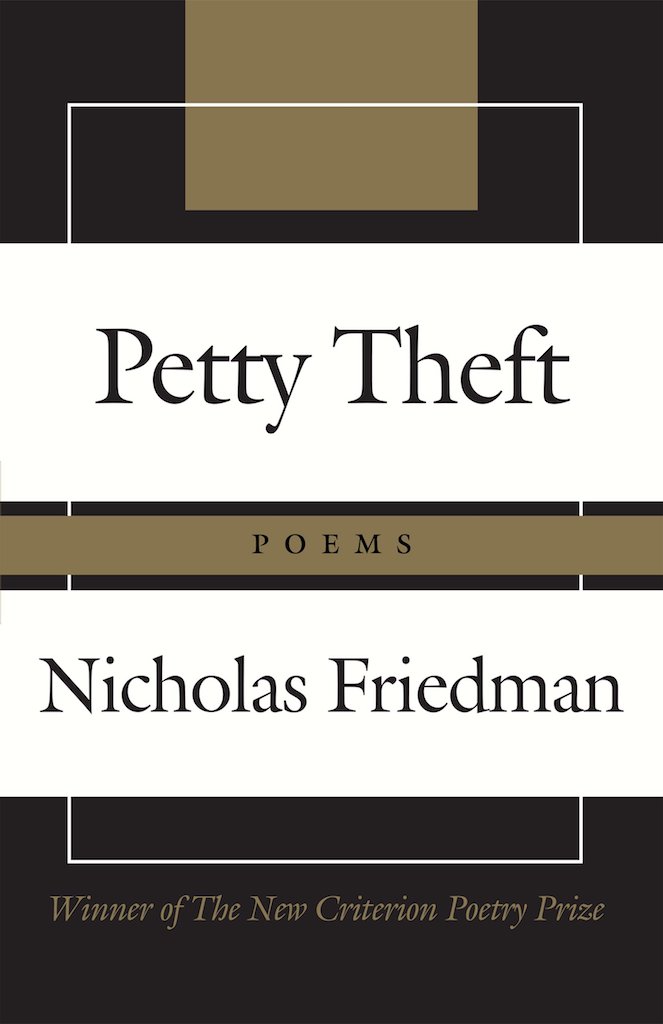She looks calmed by the nurse’s hand,which reaches for a sloping buttock whilethe other readies a clyster syringe.I stand plausibly between this drawingand another—one with no nudity, no nipplebrushing the red-crayon duveton which a woman lies in half-repose,waiting for that rush of warm water.I swear she’s almost smiling.For nearly an hour, my wife has been lostin a Flemish world of peasantry and the hunt.But now I notice her returning, and whenshe’s just behind me, I ask what she thinks.“I like it,” she says. “I’m guessing you likethe colors? Or is it just her nice—?” A joke,meaning the softness of that curve,my attention for it. Of course, it’s true,but more than Watteau’s willing figure,I’m thinking of my own, on its sideknees drawn up like a child napping.And I’m thinking how the gownslides off down my thigh, baring the fullnakedness of my back, like in a worry dream.A nurse checks the propofol IV,and the doctor asks if I’m alrightwith being observed by an intern.After I say okay, a woman enters—white-coated, stunningly young. I’m thinkingof the gown’s tiny red poppies, and howthey’re suddenly absurd, she is so beautiful.I’m thinking of that humid afternoonmy brother took an aluminum batto the face when Danny hit a home runinto the neighbor’s lawn. Danny roundedtwo makeshift bases before noticing the bloodthat came in rills from my brother’s nose.He just sort of moaned, his look far-off.I rounded the side of the house, leaving himto bleed while I shook by the flower garden.Later, I tore down all my plastic pennantsand fell asleep on the floor with the light on.Summer ended that year in the middle of June.“What is it?” my wife asks, squinting at the sketch.And I tell her about how, when I was much younger,I could sleep anywhere—under the copper beech,or on the itchy red mat in my parents’ foyer—if I lay on one side and brought my knees upthe way kids do, not meaning to forget.
The Remedy
after a drawing by Watteau
Feature Date
- September 22, 2019
Series
Selected By
Share This Poem
Print This Poem
Copyright © 2018 by Nicholas Friedman
All rights reserved.
Reproduced by Poetry Daily with permission.

Nicholas Friedman is the author of Petty Theft, winner of The New Criterion Poetry Prize. His poems have appeared in The New York Times, Poetry, Yale Review, and other venues. A former Wallace Stegner Fellow, he is also the recipient of a Ruth Lilly Fellowship from the Poetry Foundation. He lives with his wife and son in Syracuse.
In Petty Theft, Nicholas Friedman cultivates the strangeness of daily life and turns an unsentimental eye to joy, catastrophe, and the myriad stations in between. The poems often set us wandering: to the busked streets of Assisi; to a burning circus tent in Hartford, Connecticut; to a stone circle in England; to the poet’s native Upstate New York; and to his adoptive California, where a wealthy neighbor “lives behind a massive hedge, four-square/ like a curtain wall/ that keeps us here, him there.”
The “theft” of this collection’s title lurks on every page, luring faith to doubt, love to loss, and appearance to illusion. Yet these poems never lapse into hopelessness. Even where failure and tragedy precede human understanding, Petty Theft suggests the possibility of sustenance and recompense. Both confident and questioning, this debut collection announces Friedman as an important new voice in American poetry.
Petty Theft is the eighteenth winner of the annual New Criterion Poetry Prize. The New Criterion is recognized as one of the foremost contemporary venues for poetry that pays close attention to form. Building upon its commitment to serious poetry, The New Criterion established this annual prize in 2000.
Poetry Daily Depends on You
With your support, we make reading the best contemporary poetry a treasured daily experience. Consider a contribution today.




